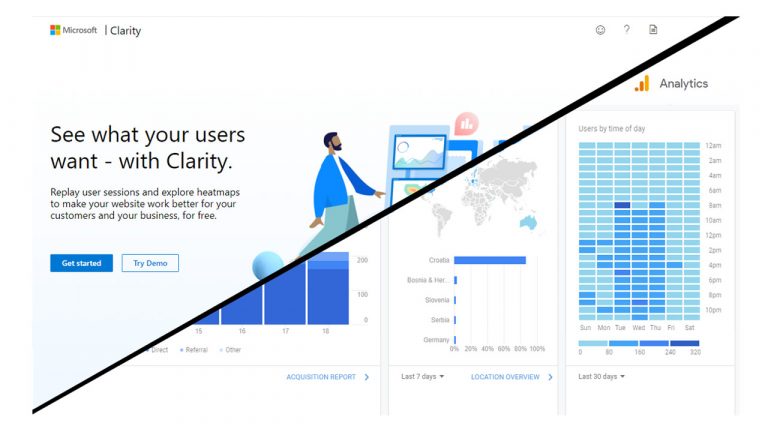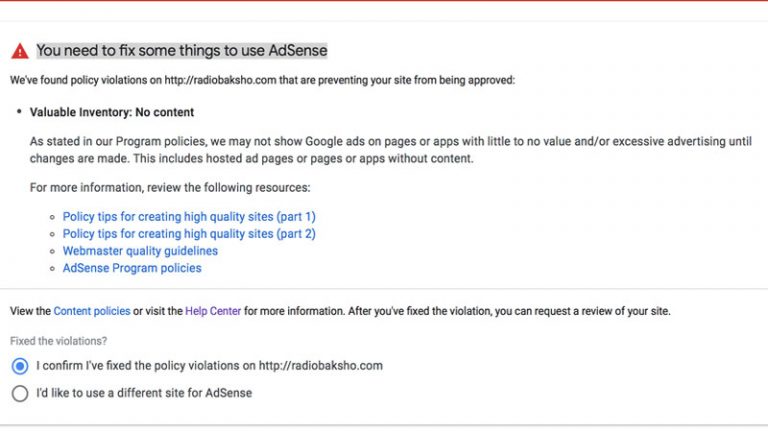Are URLs and Domain Names Case Sensitive?

Getting a complete grip on developing, web design and programming is usually considered to be completely impossible. The massive growth documented in IT has attracted a lot of interest and has certainly redistributed the employment market. Your domain name is especially important since this is the primary headline of your brand, and it’s widely regarded that it’s best to keep it as short as possible. However, a lot of people still have a lot of questions that need answers, and one of those questions is whether URLs and domain names are case sensitive?
Domain names aren’t case sensitive, and usually, URLs aren’t either, but there are instances in which URLs are case sensitive. This depends on the server hosting the site, as different servers offer different support on cases. Usually, if you type the URL in all caps, it will still bring you to the site.
Although it may be confusing, it’s actually quite simple. It’s important to be able to tell these differences if you’re looking to improve your knowledge about technology and the internet, be it professionally or for personal growth. When you’re just starting your online work, bringing your business and brand online, you’re going to see the terms URL and the domain name being thrown around often. In this article, we’ll be explaining the differences between URL and domain name, and discussing URLs’, domain names’, and subdomain names’ case sensitivity, capitalization in URLs, and in domain names.
Difference Between URL and a Domain Name.
Firstly, let’s clarify that a domain name and URL are definitely not the same thing, but they’re both important for one another and are in constant correlation.
A domain name, commonly referred to as just ‘domain’, is the name of the website. The part after www., or after @ in an email address – that’s the domain. In www.facebook.com, ‘facebook.com’ is the domain. When someone’s looking for how to find your site online, the part you’ll tell them is the domain.
Purchasing a domain name is the first step when creating a presence on the internet. This can be done by anyone, as there are domain hosts and registrars where you can find a domain name no one else is using. You usually have to pay an annual fee to use it. When doing this, you can usually choose between different name endings; not everything has to end with ‘.com’. You can choose various endings, from ‘.org’ to ‘.juice’ or ‘.pizza’, everything is fair game.
URL, on the other hand, stands for ‘Universal Resource Locator’ – that is a complete web address which you’ll use to find a web page. To refer to our previous example, Facebook’s URL is http://www.facebook.com – and every URL contains a domain name (along with other components needed to locate the specific page or piece of content. The domain name is the name of the website, but the URL will lead to any page within the website itself.
If you take a look at your browser’s address bar while you’re reading this article, the complete text you see in there is your URL, while the domain name is just the name of the site, followed by the extension. The domain is just part of the URL.
When a visitor types in your domain name into their address bar, the web browser will communicate with the host that the domain points towards and will serve the visitor the associated website.
It would maybe be good to compare this with a telephone number. Let’s say that your telephone is your website. When someone’s trying to reach you, they type in your whole number – that’s the URL. The small country code that precedes every number (for the US it’s +1, for the UK it’s +44, etc.) would be the domain name.
Are URLs Case Sensitive?
Not all URLs are case sensitive, and it all depends on the server hosting the URL and the operating system.
Servers using Windows operating systems aren’t case sensitive, but servers using Linux or UNIX systems will make a difference between differently capitalized URLs.
If the server of your website migrates to newer machines, this would mean preparing to redirect your existing pages. That means if the server used to run Windows, but now runs Linux – the URL has just become case sensitive.
This can be a problem if a user bookmarked your site and the change was made in between. Once they try to access your site through the bookmark again, the migration will make the bookmark inaccessible. You can, however, ask your host to redirect you (to literally the same page, just a newly case sensitive one). This can, however, take some time away from your browsing, because there may be a lot of content that needs redirecting.
Case-sensitivity was made a feature when URLs were first designed. This is because at the time there was no rule that defined URLs as strictly case-insensitive, and there was no need to make up such a rule. The world of programming was, and still is, complicated enough – there was no need for making up rules that would complicate it even more.
URLs were primarily designed for machines to process. Although it may seem more functional to a human that URLs should be case-insensitive – a machine doesn’t see this as an issue, and won’t make the mistake of mistyping (as it doesn’t literally type).
As I’ve already explained, it’s an option for a user to type the whole URL in the address bar, but this wasn’t an important point in the first design. The idea was that users would just click on hyperlinks, which would then take them to their destinations – and that’s much simpler than having to type a whole URL in the address bar.
Also, if the URLs had the restriction of being case sensitive, then less information could be included on the site.
Do Capital Letters Matter in a URL?
Capitalization is very important when it comes to URL. An address on the Internet is only case sensitive after the domain.
You are completely free to use capitalization, but most search engines prefer lowercase protocols than uppercase protocols. Lowercase and uppercase URLs are considered to be two different URLs to Google.
To give you a clearer overlook on this:
www.example.com/do_capital_letters_matter
is a completely different internet address from:
www.example.com/Do_Capital_Letters_Matter
and from:
www.example.com/DO_CAPITAL_LETTERS_MATTER
It’d be best to keep it all in lowercase, just for simplicity’s sake. If you combine both, say that you have a website named www.example.com/do_capital_letters_matter and one named www.example.com/Do_Capital_Letters_Matter. You would need to link those two sites because you’re creating self-duplicates. This is what can hurt your site’s SERP performance, however only if you do it en masse, and on a large enough scale.
Most SEO experts agree that you should stick to one version, and the recommended version is lowercase spelling. If needed, use 301 redirects, which will redirect the capitalized URL to the lowercase URL.
It’s best practiced to use lowercase URLs.
Are Domain Names Case Sensitive?
Unlike URLs, domain names are not case sensitive.
facebook.com, Facebook.com, FaceBook.Com, and FACEBOOK.COM will all lead you to Facebook. The reason for this is DNS, the Domain Name System, which has ASCII-based domain names. ASCII is just a character encoding standard for electronic communication.
It makes perfect sense that domains are programmed like this because you wouldn’t want your clients to mistype a single letter and land on another site.
However, there are domains that seem to be case sensitive.
This is because we now have IDN – Internationalized Domain Names that allow Unicode characters. This means that they allow language-specific characters, for example: č, ć, š, đ, ž, ś, ż, ą, ę, etc. – and this can create problems because it’s sometimes difficult to define uppercase and lowercase characters in some languages.
So, despite domains aiming at case-insensitivity, they may end up being case sensitive. Albeit, the practice of registering IDN domains is not yet popular.
Are Subdomains Case Sensitive?
No, subdomains are case insensitive.
A subdomain is (most often) the ‘www.’ part of an URL. This part is completely case insensitive.
www., WWW., and WwW.com will all ultimately lead to the same site, and capitalization will have no effect.
Do Capital Letters Matter in Domain Names?
Functionally, capital letters are completely unimportant in domains, but they’re important stylistically.
Search engines do not place any importance on sites that use capital letters in their domain names. Many sites use different capitalization, but web servers will still treat domain names as case neutral. It doesn’t matter whether you type the address in lowercase, uppercase, or a combination of both – the search engine will automatically lead you to an all-lowercase site.
However, when we’re talking about style and SEO, the tables turn.
Breaking your domain name into visually discernible parts can have a great effect on your site. The site then stands out to the readers and it makes the domain name much easier to read.
YouTube.com will always draw more attention than youtube.com
However, an editor of the Jargon File commented this on a forum when this same question was asked “Never capitalize domain names unless you know for certain they were registered with that exact capitalization. In practice this means: Never, ever capitalize. If this means you have to rewrite a sentence to avoid having a domain name at the beginning, do so.”
Implying that consistency is extremely important and should always be stressed over styling.
As a general rule domain names are written in lowercase. This transcends other conventions like capitalizing abbreviations – for example, the IANA website is referred to as “www.iana.org” – even though it is an abbreviation, it’s still written in lowercase just to keep consistent with the rest of the internet.
It is preferable to let the domain name stand-alone, the way you would type it in a URL bar. For example, “The new acme.com website” rather than “acme.com’s new look” – this is because it’s best not to confuse the users who might search for your website on the internet. Web designers always advise not to use hyphens when creating a website, and when talking about it – editors advise us not to use apostrophes, even if that means that you have to reformulate the whole sentence.
Also, when you’re talking about your site online, it’s best to avoid starting the sentence with the name of the site – just to avoid accidental capitalization. Instead of saying „Example.com is the name for our new website.“ – you should say „Our new website’s name is example.com“
As I’ve already mentioned, it’s sometimes proficient to capitalize the domain, but that’s exclusively for marketing purposes, and after advising with marketing experts.
If you’re including ‘www.’ in the description of your site, make sure you always lowercase it. ‘WWW.’ seems too aggressive, and ‘Www.’ is just ridiculous.
Are Email Domain Names Case Sensitive?
Shortly – no. Email domains are entirely case insensitive.
This is probably the most common problem out of all the problems in this article. Who hasn’t started writing an email and wondered “Hmm, is it going to be a problem if I capitalize the first/last name of the person I’m addressing?”
Luckily, you can breathe calmly from now on, since emails are completely insensitive to letter casing.
You can start the email address with a capital letter and finish it in lowercase, you can do the opposite of that, or you can completely capitalize it or write it in lowercase. The result will be the same.
[email protected], [email protected], [email protected], [email protected], [email protected], [email protected], etc., are all the same email address.
Email domain is everything following the ‘@’ sign, in our example, it’s ‘gmail.com’ – and it is case insensitive in email addresses, just like with domains in URLs. Capitalization of an email’s domain does not affect its delivery at all.
When it comes to the unique address, the part preceding the ‘@’ sign, then things can (but don’t necessarily have to) become tricky. This is because internet protocols are constantly revised and constantly get redone.
Therefore, there are servers on the internet that will make a difference between [email protected] and [email protected] – but those servers are usually wildly outdated.
Are Windows Domain Names Case Sensitive?
I’ll answer this with a quote taken directly from Microsoft’s official documentation on naming internet domains.
“For ASCII characters, DNS is not case-sensitive, and Windows and Windows applications are not case-preserving in all places.”
No, Windows domains are entirely case insensitive. This is because, in the earliest days of Windows, there was only DOS. Back then, there was only one-way characters were set, and that’s uppercase. All files were in uppercase. Everything looked ‘LIKE THIS’
When Windows allowed for further use (not just mechanical, but actual personal computers) – this changed. People now had the opportunity to type however they wanted: uppercase, lowercase, or both – it was entirely unimportant as DOS was still Windows’s background system. It was converting everything to uppercase. To DOS: ‘Example’ was equal to ‘example’, which was equal to ‘ExAmPlE’, which was ultimately equal to ‘EXAMPLE’ – and the latter was the only thing DOS understood and cared about.
Now, the issue became apparent when the internet came around and people started naming domains like this (because they had spent years thinking that case insensitivity is a thing).
To stop people from creating too much of a commotion and confusion, domain names at Microsoft were created and programmed to automatically lowercase anything, no matter how it’s written. That’s why everything is lowercase by force, and Windows domain names are entirely case insensitive.






